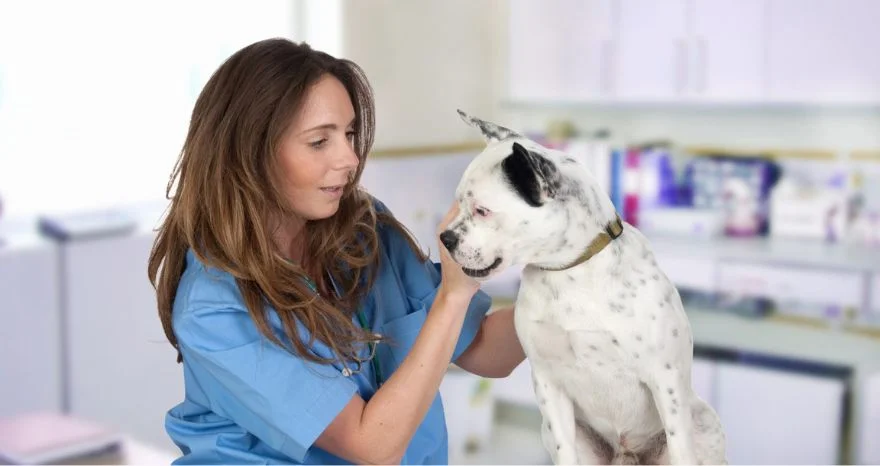Owning a pet dog is one of the best things. They provide great company. In general, they can be rightly associated with the happiness and joy in someone’s life. It is possible to develop a very deep attachment to dogs in a short span of time. Only a dog parent can imagine the amount of stress and anxiety that the dog’s discomfort might cause their parents. Today we will answer how often should you take your Dog to the Vet for a Checkup.
This anxiety is generated out of love for the pets; it is advisable to research the particular needs of your dog, in terms of their medical needs. This article articulates the specificity of the medical emergencies that are often overlooked, as determines the ideal interval for a vet checkup.
How should the Peculiarities in their Behaviour be addressed?
As a dog parent, you are expected to be very particular about the body language of the dog. Much like humans, the dog’s body language is a mirror into their mind. To ensure that you understand your dog and their health, even the slightest change from, the normal must be addressed and scrutinized. These changes can be indicators of grave illness or assessment. Hence, any change of behavior must be reported to the vet.
For instance, most of us have witnessed dogs shaking their heads. It is normal to practice this exercise. Dogs are seen shaking their heads, especially after swimming. It is an effective method to shake off the water, which might otherwise enter their ear canal. The same applies to dirt and insects. Dogs shake their heads, to get rid of the irritants and to ensure that their ear canals remain safe. However, the dog parent must notice if the dog shakes its head too often. It can be due to ear infections. If that is not promptly addressed, it can lead to further damage.
What is the typical interval between checkups?
The very simple answer to this question is every six months. However, it is a gross generalisation. Every type of breed is unique and has a separate set of requirements. Additionally, every dog is separate from other dogs. While some breeds are prone to certain illnesses, others are not. This varying set of requirements and medical attention means any generalisation is faulty. Additionally, the age of the dog is another important factor that should be counted in. For instance, dogs with the age of 2 to 5 years of age need annual checkups. These routine checkups prevent any unforeseen illness to further its manifestation.
All about the health of your baby dog or a puppy and how to plan it
The early years of the dog are crucial for the parents. It should be reflected in terms of their medical attendance as well. Upon the arrival or the adoption of the dog, every step should be taken to ensure a healthy life. Ensuring an appointment with a good vet is one of the tasks.
It is imperative to work out the details of the routine of the vaccination and the intervals for the checkups for the particular breed. Much like that of the human child, dogs need vaccines to build a better immunity against certain illnesses.
The other factor which is generally forgotten about is insurance. The insurance for your beloved dog is a way of securing their medical expenses and promising them the best possible care. Insurances are understood as a cushion that helps one financially. It is important to learn that the insurances for dogs are of various kinds.
You can also find an insurance that covers preventive care for the dog. Preventive care is more focused on the prevention and the diagnosis of the illness than cover the charges for the medical treatment. Hence, insurances vary too. It is imperative to carefully pick the insurances that are ideal for you. The coverage of the insurances must be known to the parents.
How should you prepare for the visit to the vet?
A visit to a vet needs a list of preparations that cannot be ignored. If these are ignored, the visit might end up being futile altogether. The vet is likely to ask for the medical history of the dog, to better their understanding of the dog. Additionally, details about the dogs might also be asked.

The dietary timings and the preferences of the dog; the amount of food and water intake per day; any significant changes in the recent past concerning the food and water intake; the record of the medications that might have been administered to the dog; their sleep cycle and any symptoms of lethargy and loss of energy can be asked.
With this, the parent must know the history of their vaccination and deworming and ectoparasite control status. Travel history and the changes in their moods and temperament must be noted by the parent too. They ensure a more efficient diagnosis and allow the vet to have a fair idea about the dog.
Hope you got How often should you Take your Dog to the Vet
Vets are very important in the life of animals. When consulting a vet, the parent must primarily consider the wellbeing of their dog. This can be translated to valuing their words and adhering to them. It is always convenient to locate a good local vet, for emergencies and the routine checkups. Routine checkups must be prioritised in accordance with the prescription of the vet. There is no room for neglect.


Pingback: Can dogs eat Cauliflower? | PetDaliyPress
Pingback: How Long Does Rawhide Take to Digest in Dog? | PetDaliyPress
Pingback: The Reasons Why Does Your Dog Whimper In His Sleep | PetDaliyPress
Pingback: Why are Prenatal Supplements Essential for Pregnant Dogs? |